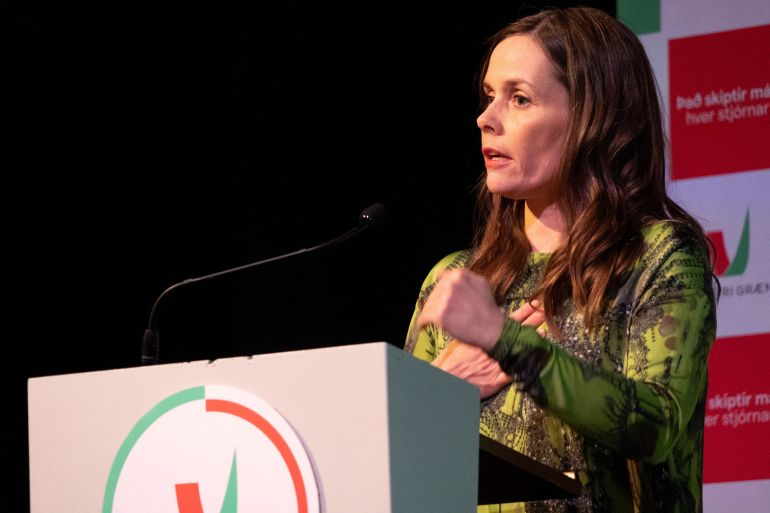Women win majority of seats in Iceland’s election
Voters elect 33 women to parliament, up from 24 in the last election.

Iceland’s national election has, for the first time, seen more women than men elected to a European parliament.
Final results on Sunday also showed the country’s ruling left-right coalition strengthening its majority.
Keep reading
list of 3 itemsIceland government poised to win majority, but future uncertain
In Pictures: Dormant volcano that came to life in Iceland
Opinion polls had earlier forecast the coalition would fall short of a majority but a surge in support for the centre-right Progressive Party, which won five more seats than in 2017, pushed its total count to 37 seats in the 63-seat parliament Althingi, according to state broadcaster RUV.
Voters elected 33 women to parliament, up from 24 in the last election.
Iceland was ranked the most gender-equal country in the world for the 12th year running in a World Economic Forum (WEF) report released in March.
As of last year, only three other countries – Rwanda, Cuba and the United Arab Emirates – had more women than men in parliament, according to data compiled by the World Bank.
In Europe, Sweden and Finland have 47 percent and 46 percent women in parliament respectively.
Unlike some other countries, Iceland does not have legal quotas on female representation in parliament, though some parties do require a minimum number of candidates to be women.

Iceland’s current government, which consists of Prime Minister Katrin Jakobsdottir’s Left-Green Movement, the conservative Independence Party and the centrist-agrarian Progressive Party, said before the election that they would negotiate continued cooperation if they held their majority.
President Gudni Johannesson said he would not hand a mandate to form a new government to any party but would await coalition talks among the three parties.
“Now the ball is in the hands of the sitting government,” he told the Visir newspaper.
The conservative Independence Party again became the biggest in parliament with nearly a quarter of the votes and 16 seats, unchanged from the last election.
Party leader and former Prime Minister Bjarni Benediktsson said he was optimistic that the three parties could form a coalition and he would not demand to lead a new government, RUV reported.
The Progressive Party is led by Sigurdur Ingi Johannsson, who served as prime minister for less than a year in 2016 when former prime minister and then-party leader Sigmundur David Gunnlaugsson stepped down following Panama Papers leaks.
Iceland was the first country to elect a woman as president in 1980, and since 2018 it has had a pioneering gender-equal pay law that puts the onus on employers to prove they are paying the same wages to men and women.